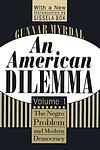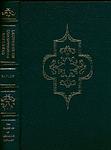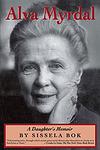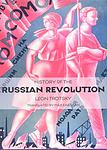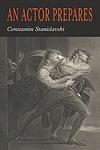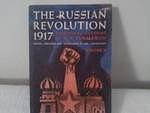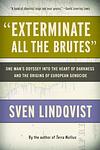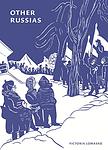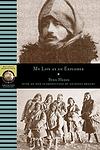The Greatest Russian, Swedish "Nonfiction" Books Since 1900
Click to learn how this list is calculated.
This list represents a comprehensive and trusted collection of the greatest books. Developed through a specialized algorithm, it brings together 290 'best of' book lists to form a definitive guide to the world's most acclaimed books. For those interested in how these books are chosen, additional details can be found on the rankings page.
Genres
Countries
Date Range
Reading Statistics
Click the button below to see how many of these books you've read!
Download
If you're interested in downloading this list as a CSV file for use in a spreadsheet application, you can easily do so by clicking the button below. Please note that to ensure a manageable file size and faster download, the CSV will include details for only the first 500 books.
Download-
1. The Gulag Archipelago by Aleksandr Solzhenitsyn
"The Gulag Archipelago" is a comprehensive and stark account of the Soviet Union's forced labor camp system. The narrative, based on the author's own experiences as a prisoner and on extensive research, documents the history, operation, and life inside the Gulag system. It also provides a critical examination of the regime's legal system, police operations, and political leadership. The book is an intense indictment of the Soviet Union's totalitarian regime, revealing its brutality, inhumanity, and vast scale of its prison camp network.
-
2. An American Dilemma by Gunnar Myrdal
This book is a comprehensive sociological study on the issues faced by African Americans in the United States during the mid-twentieth century. The author examines the deep-rooted racial discrimination and inequality prevalent in American society, exploring its origins, implications, and potential solutions. The work is notable for its detailed analysis and its impact on subsequent civil rights movements.
-
3. My Childhood by Maxim Gorky
"My Childhood" is a poignant and powerful autobiographical account of a young boy's life in 19th-century Russia. The narrative explores the harsh realities of growing up in a dysfunctional family, with a cruel stepfather and an uncaring mother, against the backdrop of poverty and social unrest. The protagonist's struggles, resilience, and observations provide a vivid portrayal of the societal conditions of the time, while also illuminating the human capacity for hope and perseverance in the face of adversity.
-
4. Notes From The Blockade by Lydia Ginzburg
"Notes From The Blockade" is a poignant memoir that provides a firsthand account of life during the Siege of Leningrad in World War II. The author, Lydia Ginzburg, vividly describes the hardships, hunger, and constant fear experienced by the city's residents, while also exploring the resilience and strength of the human spirit. Through her powerful narrative, Ginzburg offers a deeply personal and moving portrayal of survival amidst unimaginable circumstances.
-
5. Memoirs Of A Revolutionist by Vera Figner
"Memoirs of a Revolutionist" is a captivating autobiography that chronicles the life of a remarkable woman, detailing her journey from a privileged upbringing to becoming a prominent figure in the Russian revolutionary movement. Through her personal experiences and reflections, the author provides a vivid account of the political and social upheaval in 19th-century Russia, shedding light on the struggles, sacrifices, and triumphs of those dedicated to the cause of revolution. This thought-provoking memoir offers valuable insights into the complexities of revolution and the indomitable spirit of those who fight for change.
-
6. Fallen Leaves by Vasily Rozanov
"Fallen Leaves" is a collection of philosophical and autobiographical essays that delve into the author's musings on a wide range of topics, including religion, sexuality, and society. The work reflects the author's critical examination of modernity and the decline of traditional values, as well as his personal sense of isolation and disillusionment with the contemporary world. Through a series of fragmented and often controversial reflections, the author grapples with the existential challenges of his time, presenting a candid and introspective exploration of the human condition at the turn of the 20th century.
-
7. My Life by Leon Trotsky
This autobiography provides a detailed account of the life of a prominent Russian revolutionary and Marxist theorist. The book traces his early life, education, and political development, his role in the Russian Revolution and Civil War, his leadership of the Red Army, and his expulsion from the Communist Party and subsequent exile. It offers a unique perspective on key events in 20th-century history and an insight into the author's complex personality and intellectual development.
-
8. Conditioned Reflexes by Ivan Pavlov
"Conditioned Reflexes" is a groundbreaking work that delves into the study of behaviorism and the concept of classical conditioning. The author, a renowned physiologist, presents his findings on how an organism's responses can be triggered or conditioned by external stimuli, using his famous experiments with dogs as a prime example. The book significantly influenced the field of psychology and laid the foundation for future studies on learning and behavior.
-
9. Creatures that Once Were Men by Maksim Gorky
"Creatures that Once Were Men" is a collection of short stories that depict the harsh realities of life in the lower classes of Russian society. The stories are set in a night refuge for the homeless, where the characters, despite their grim circumstances, strive to maintain their humanity. Through their struggles, the author explores themes of poverty, addiction, despair, and the human spirit's resilience.
-
10. The Unwomanly Face Of War by Svetlana Alexievich
"The Unwomanly Face Of War" is a powerful and poignant collection of interviews with Soviet women who fought in World War II. Through their testimonies, the author sheds light on the often overlooked and untold stories of these brave women who served as snipers, pilots, nurses, and soldiers on the front lines. The book explores their experiences, sacrifices, and the lasting impact of war on their lives, providing a unique and intimate perspective on the realities of war from a female point of view.
-
11. State And Revolution by Vladimir Il’ich Lenin
This seminal political theory text delves into the role of the state in society and the necessity of proletarian revolution to dismantle the bourgeois state apparatus. It argues that the working class must seize state power, dismantle the existing state machinery, and establish a dictatorship of the proletariat as a transitional phase towards the creation of a classless, stateless society. The work critically analyzes the ideas of Marx and Engels on the state, while also addressing the practical aspects of revolution, including the suppression of the bourgeoisie by the proletariat. It serves as a theoretical foundation for understanding the dynamics of class struggle and the path towards socialism.
-
12. Alva Myrdal: A Daughter's Memoir by Sissela Bok
This memoir provides an intimate portrayal of a Nobel laureate and prominent figure in international diplomacy and social reform, as seen through the eyes of her daughter. The book delves into the complexities of the subject's public achievements and personal life, exploring the challenges she faced as a woman in the mid-20th century balancing a career with family responsibilities. The daughter's perspective offers a unique insight into the character and legacy of a woman who made significant contributions to social policy and disarmament, while also shedding light on the familial relationships that shaped her life and work.
-
13. History Of The Russian Revolution by Leon Trotsky
The book provides a detailed analysis of the Russian Revolution of 1917, written by one of its key leaders. It explores the socio-political and economic conditions that led to the fall of the Russian Empire and the eventual rise of the Soviet Union. The narrative delves into the complex interplay of various classes and political factions, the role of leadership, and the strategies employed during the revolution. The author uses his firsthand experience to offer insights into the events and their significance, presenting a critical examination of the revolution's phases, from the initial uprisings to the consolidation of Bolshevik power.
-
14. Theory Of Peasant Economy by Alexander V. Chayanov
"Theory of Peasant Economy" explores the unique economic behaviors and motivations of peasant households, which differ significantly from those of capitalist enterprises. The book argues that peasant economic decisions are primarily based on the family's labor balance rather than on maximizing profits. The author introduces the concept of the "family-labor farm," where the household's subsistence needs dictate agricultural production levels and the use of family labor. This seminal work challenges traditional economic theories by emphasizing the importance of internal family dynamics and demographic changes in understanding the economics of peasant life.
-
15. The State And Revolution by Vladimir Il’ich Lenin
"The State and Revolution" is a political treatise that theorizes about the role of the state in society and the necessary conditions for the transition to socialism. The work critically analyzes the state as a tool for class oppression, where it serves the interests of the ruling class. It discusses the inevitable decay of the state under socialism and its eventual dissolution in a communist society. The author emphasizes the necessity of a proletarian revolution to overthrow the bourgeois state, which would be replaced by a proletarian state—a dictatorship of the proletariat—serving as an instrument to suppress the resistance of the former ruling class and to manage the transition to a stateless, classless society.
-
16. Morphology Of The Folktale by Vladimir Aioakovlevich Propp
"Morphology of the Folktale" is a seminal work in the field of folklore studies that analyzes the structure of Russian folktales to identify their simplest irreducible narrative elements and their arrangement. The author introduces the concept of "functions" which are common plot devices used in folktales, and categorizes these functions into a consistent and repeatable framework. This structural approach to the study of tales reveals that despite the varied and complex surface of stories, their underlying structures follow a limited number of patterns. This methodology not only provides a tool for analyzing tales but also influences subsequent structuralist and narratological approaches in the broader field of cultural studies.
-
17. An Actor Prepares by Konstantin Stanislavski
"An Actor Prepares" is a seminal work in the field of acting and theater, presenting a fictionalized account of a young actor's journey and experiences in learning the art of acting according to the innovative techniques developed by the author. Through a series of lectures and workshops led by a wise teacher, the book delves into various aspects of building a character, including the importance of imagination, concentration, and emotion memory. The narrative is both instructional and reflective, offering insights into the psychological preparation and discipline required to deliver authentic and compelling performances on stage.
-
18. The Russian Revolution by N.N. Sukhanov
"The Russian Revolution" is a detailed eyewitness account of the pivotal events that shaped Russia in 1917. The author, a participant and observer in the political circles of Petrograd, provides a comprehensive narrative of the revolution from the February overthrow of the Tsar to the October seizure of power by the Bolsheviks. Through his personal experiences and assessments, the book offers a vivid portrayal of the struggles, the political debates, and the personalities involved in the revolution, including Lenin, Trotsky, and other key figures. The author's unique perspective as a socialist but critical observer of the Bolsheviks adds depth and complexity to the historical analysis of the revolution's development and outcomes.
-
19. Factfulness by Hans Rosling
The book challenges common misconceptions about the state of the world, using a wealth of statistical data to argue that, contrary to popular belief, global living conditions are improving significantly. It introduces ten instincts that distort our perspective—from the fear instinct (which leads us to perceive the world as more frightening than it is) to the destiny instinct (which causes us to assume that the fates of populations are predetermined). The author, a renowned public health expert, encourages readers to adopt a "factful" mindset, which relies on data and evidence to create a more accurate understanding of the world, ultimately fostering a more positive and productive approach to global challenges.
-
20. Exterminate All The Brutes by Sven Lindqvist
The book is a profound exploration of European imperialism and the roots of genocide, blending travelogue, personal diary, and historical analysis. The narrative delves into the dark history of colonialism, examining how racist ideologies were used to justify the extermination and subjugation of non-European peoples under the guise of civilization and progress. Through a series of interwoven reflections and accounts, the author confronts the violence and atrocities committed by European powers in Africa and beyond, challenging readers to acknowledge and understand the brutal legacy of colonialism that has shaped the modern world.
-
21. Autobiography by Maksim Gorky
The book is a powerful and evocative memoir that chronicles the harsh and often brutal life of a Russian writer who rose from poverty to become one of the most celebrated literary figures of his time. It vividly portrays his early years, marked by relentless adversity, including childhood experiences with abusive relatives and his eventual escape into a life of vagrancy, where he encountered a diverse array of characters and harsh realities. Through his journey, the author reflects on the social injustices and the plight of the lower classes in Tsarist Russia, all while developing his own intellectual and political consciousness. His narrative is not only a personal story of survival and self-education but also a window into the societal conditions that would eventually lead to the Russian Revolution.
-
22. The Diary Of A Gulag Prison Guard 1935 6 by Ivan Chistyakov
"The Diary Of A Gulag Prison Guard 1935-6" is a chilling and harrowing memoir that provides a firsthand account of the atrocities and cruelty witnessed by Ivan Chistyakov during his time as a guard in a Soviet Gulag prison. Through his detailed entries, Chistyakov reveals the dehumanizing conditions, brutal punishments, and constant fear that both prisoners and guards endured within the oppressive Soviet regime. This haunting narrative serves as a stark reminder of the dark realities of the Gulag system and the lasting impact it had on the lives of countless individuals.
-
23. Other Russias by Victoria Lomasko
"Other Russias" is a powerful and thought-provoking graphic novel that offers an intimate and unfiltered glimpse into the lives of marginalized individuals and communities in contemporary Russia. Through her stunning illustrations and poignant interviews, Victoria Lomasko sheds light on the struggles, hopes, and resilience of diverse groups such as LGBTQ+ activists, migrant workers, political dissidents, and the forgotten voices of rural communities. This eye-opening book challenges stereotypes and provides a humanizing portrayal of those who are often overlooked or silenced in Russian society.
-
24. In the Land of White Death by Valerian Albanov
This book is a gripping first-person account of a Russian navigator's survival journey in the Arctic wilderness. After his ship gets trapped in pack ice, the protagonist and his crew embark on a grueling trek across the frozen landscape, battling extreme weather, starvation, and despair. The narrative provides a vivid depiction of the harsh Arctic environment and human resilience in the face of adversity.
-
25. My Life as an Explorer by Sven Hedin
"My Life as an Explorer" is an autobiographical account of a famous Swedish explorer's adventures across Central Asia in the late 19th and early 20th centuries. The book includes vivid descriptions of his encounters with diverse cultures, dangerous wilderness, and ancient civilizations. The author also shares his experiences of mapping uncharted territories, surviving harsh climates, and uncovering archaeological treasures, providing readers with an intimate glimpse into the life of an explorer during this era.
Reading Statistics
Click the button below to see how many of these books you've read!
Download
If you're interested in downloading this list as a CSV file for use in a spreadsheet application, you can easily do so by clicking the button below. Please note that to ensure a manageable file size and faster download, the CSV will include details for only the first 500 books.
Download
